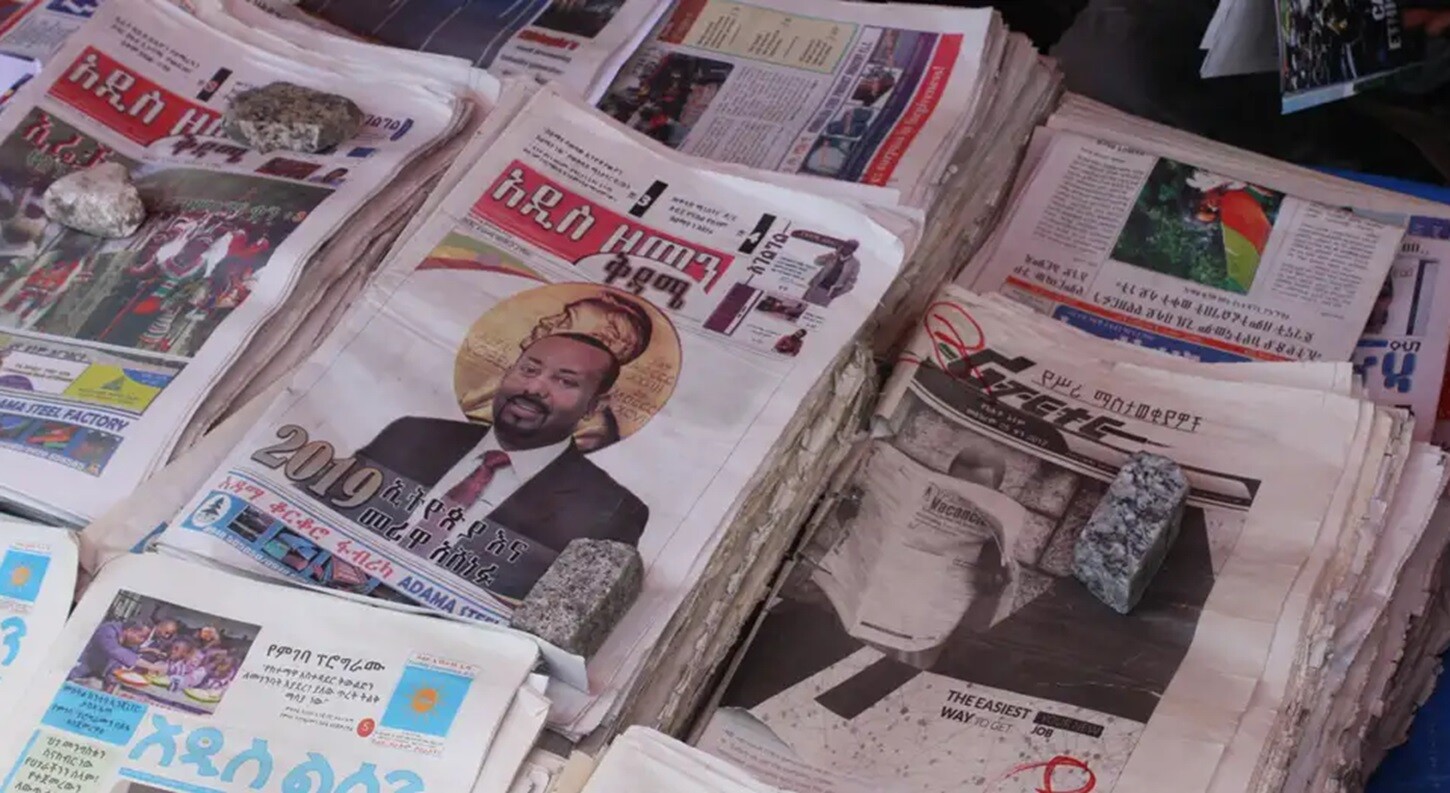
By Habtamu Kebede
The government’s control over media and suppression of dissenting voices
The independent press in Ethiopia has reportedly been prohibited from reporting on the recent fire that destroyed the Merkato stores. Not only were journalists barred from reporting from the scene, but they were also allegedly ordered not to comment on the incident. There have been threats of retaliation for any further action.
Reportedly, over four hundred stores have been reduced to ashes. Despite being called, firefighters did not immediately respond to the scene. As a result, the fire lasted for several hours and devastated the livelihoods of thousands of people.
An anonymous store owner reported a loss of fifty million Ethiopian birr in clothing and other merchandise. He believes that the fire was intentionally caused by arson, not an accident. He suspects that the alleged arsonists may be affiliated with the ruling party, as they have been threatening him and others for an extended period of time.
On the other hand, Pro-government extremist elements have expressed their intention to drive out a certain group of Ethiopian citizens from Addis Ababa. The extremists have been using various social media platforms to announce their plans to launch coordinated and coercive measures in order to force certain groups out of the capital city.
Additionally, the Prime Minister’s advisor on youth and sports, Kejela Merdasa, appeared in the media and stated that Addis Ababa must be under the administration of Oromia region. This figure, in an analogous manner, asserted false claims about Ethiopian history and its former leaders. However, these claims lack evidence or credible sources. He specifically targeted King Menelik, using disrespectful language to describe his leadership.
The divisive rhetoric and hateful language are associated with a handful of elites who are pushing their agenda of hate in order to maintain their social status and cling on power. The above mentioned unqualified advisor is among those venomous individuals who are attempting to push the nation into firestorm.
The Ethiopian Prime Minister, Abiy Ahmed, is known for his prompt response in expressing condolences and well wishes for both natural and man-made incidents around the world. However, to the surprise of many, he has not made any statements regarding the recent incident in Merkato, which resulted in the destruction of over four hundred stores and the livelihoods of thousands of people. This lack of action has been interpreted in various ways and has signaled a lack of empathy towards the people he is ruling.
On the other hand, the notorious Addis Ababa Mayor, who is responsible for demolishing homes and displacing people, has been placing excessive emphasis on narrow roads as a hindrance for firefighters to quickly reach the scene. This could potentially lead to the displacement of store owners under the pretense of widening the road for safety reasons.
The free press has been prohibited from reporting on the severe human rights abuses and massacres carried out by the regime against Amhara civilians in the Amhara region. The regime persists in using drones and other aircraft to target and harm civilians, in an attempt to intimidate and suppress FANO, the courageous forces who are risking their lives to safeguard and defend the Amhara people.
The Merkato fire is particularly noteworthy as it took place in Addis Ababa, where diplomats and various regional, continental, and international organizations are located.
The regime’s actions have raised questions about their responsibility for the destruction of Merkato, the oldest open-air market in Africa. It is clear that they have something to hide from the public.
.
.
.
#Free #Press #Ethiopia #Habesha #Latest #Ethiopian #News #InDepth #Analysis
Source link











